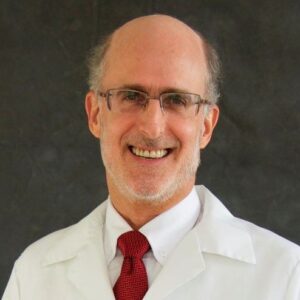
MIU scientists co-lead landmark study linking Transcendental Meditation to major heart health benefits
A major new study co-led by MIU researchers and published in Frontiers in Medicine has found that practicing Transcendental Meditation® (TM) can significantly reduce heart attacks, strokes, and deaths in people at high risk for cardiovascular disease.
The randomized controlled trial, funded by the National Institutes of Health (NIH), followed 200 Black men and women in Los Angeles — an underserved population disproportionately affected by heart disease. Over a five-year period, participants practicing TM experienced a 65% reduction in major adverse cardiovascular events compared to those who received standard health education.
A replication study with powerful results

“This is one of the largest and longest studies of its kind,” said senior investigator Dr. Robert Schneider, MD, FACC, Distinguished Professor of Integrative Medicine and Health and Director of MIU’s Center for Natural Medicine and Prevention. “Our findings replicate and extend earlier NIH-funded research showing that reducing stress through meditation has real, lasting benefits for heart health.”
The trial was conducted at King-Drew Medical Center in Los Angeles in collaboration with medical scientists at UCLA, Cedars-Sinai Medical Center, Des Moines University, and the University of Illinois at Chicago.
Scientific highlights
The study found:
- The TM group experienced a 65% reduction in cardiovascular events — heart attacks, strokes, and deaths – over 5 years.
- Both the TM and health education interventions prevented progression of atherosclerosis. But only the TM group went further — reducing rates of heart attacks, strokes, and deaths, offering remarkable protection for cardiovascular health.
- The TM group sustained those long-term benefits — fewer heart attacks, strokes, and cardiovascular deaths — for 10 years. These outcomes were not observed in the health education group, highlighting the unique and lasting protection offered by the TM program.
The study targeted Black Americans, who face elevated rates of heart disease partly due to chronic stress from systemic factors like discrimination and limited healthcare access.

“Transcendental Meditation is a simple, evidence-based technique that may help reduce stress and protect cardiovascular health, especially in underserved groups,” said lead author Dr. Keith Norris, Professor of Medicine at UCLA. Dr. Norris is an internationally recognized clinician scientist and health policy leader. The recipient of numerous honors and awards from students, peers, community, and professional organizations, he serves as the Editor-in-Chief Emeritus of the international journal Ethnicity and Disease.
“This research reflects MIU’s mission to integrate consciousness-based approaches with cutting-edge science,” said Dr. Schneider. “We are helping to pioneer a new model of whole-person health that addresses the mind, body, and environment together.”
MIU faculty Dr. John Salerno, Dr. Carolyn Gaylord-King , and Dr. Sanford Nidich were also key investigators.

Another co-author is Amparo Castillo, MD, PhD, Clinical Assistant Professor of Community Health Sciences at the University of Illinois/Chicago. She holds an MS in Physiology from MIU and served as assistant professor and researcher at MIU’s Maharishi College of Vedic Medicine and Center for Natural Medicine and Prevention.
A 25-year collaboration
“This research collaboration began over 25 years ago, bringing together leading experts from several fields of mind-body medicine and integrative health — including meditation, stress and heart disease, and minority health and health disparities,” Dr. Schneider said.
Physicians, psychologists, and scientists from Charles R. Drew University, Cedars-Sinai Medical Center, UCLA, Maharishi International University, and the Institute for Prevention Research joined forces in the late 1990s to launch the first federally funded studies on meditation and cardiovascular disease.
“Their landmark research demonstrated that TM can lower blood pressure, prevent atherosclerosis, improve heart function, and even reduce the risk of death, heart attacks, and strokes,” Dr. Schneider said. “This latest study reflects decades of groundbreaking interdisciplinary, multi-institution teamwork and MIU’s continuing leadership in consciousness-based approaches to health.”
The study authors wish to acknowledge MIU researcher Dr. Maxwell Rainforth for his support with biostatistics, Linda Heaton for her administrative role over the years, and Dr. Skip Alexander for his pioneering contributions to this research program.
Read the full published study in Frontiers in Medicine.
